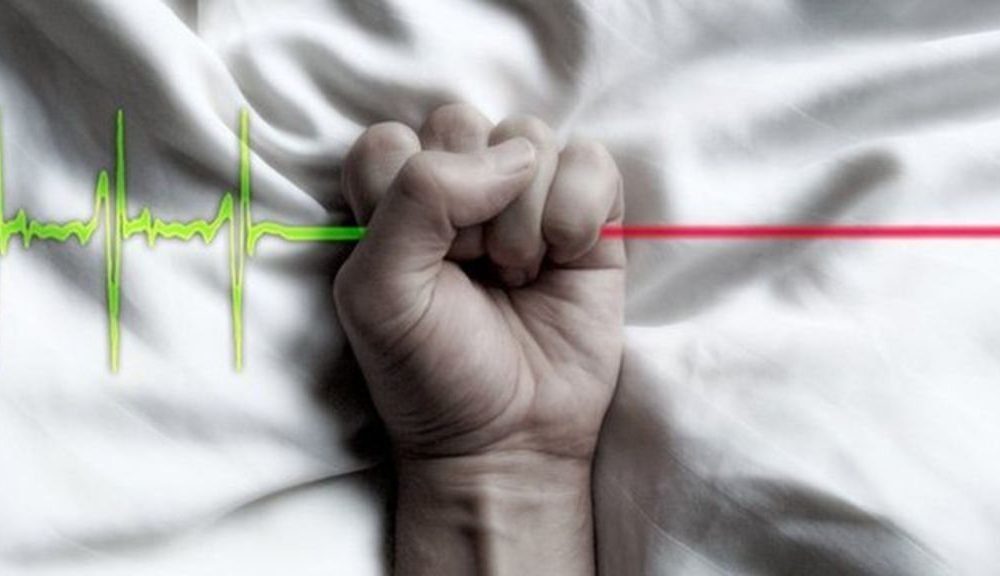In a place where reality increasingly resembles the world of science fiction, it is not difficult to die. In fact, it's easier than you think.
This month AP News reported on several Canadians being euthanized or "only" being forced to consider euthanasia under the recently liberalized suicide law. A man with a degenerative brain disorder was asked why
your hospital care costs $1,500 a day, would you be interested in assisted dying?
Another suicidal mental patient asked for and received help to die, allegedly because of a "hearing disorder." The third person, a 41-year-old man with ALS, was also euthanized after he was unable to raise enough money for medical equipment to allow him to stay at home with his son. Each case represents the fruit of Canada's "death with dignity" campaign.
More than 10,000 people died by euthanasia in Canada last year, more than 3 percent of all deaths recorded nationally in 2021.
Of the 10,000 Canadians who committed suicide with the help of health professionals, 219 did not have an accurate diagnosis.
The right to commit suicide in Canada was discovered by liberal lawyers in 2016. In 2014, the British Columbia Civil Liberties Association claimed that a national ban on euthanasia violates the Charter of Rights and Freedoms . The Supreme Court of Canada agreed and in 2016 overturned the law that classified suicide as a form of murder. The court gave parliament a year to pass enabling legislation.
The original law required patients to have a terminal illness to qualify, but a state court overturned that requirement in 2019 after another activist lawsuit.
The national and provincial governments rejected an appeal against the ruling, prompting Parliament to pass Bill C-7 , which would make any adult with a serious illness or disability capable of making informed decisions about voluntary lethal injection. It also created an "expert review panel" to study whether mentally ill people and "mature minors" could become eligible for assisted suicide in the future.
In the years since euthanasia was legalized, the number of Canadians receiving lethal injections has nearly quadrupled.
In 2017, the first full year the practice became legal, 2,838 Canadians were put to sleep. By 2020, this number had more than doubled. And Canadian leaders have a positive view of euthanasia. They see it as an extension of the country's progressive national character. Health Minister Jean-Yves Duclos said Canada's suicide regime "recognizes the rights of all people" and the "inherent and equal value of every life." One of the country's Canadians "have the right to decide when their lives end and when their suffering ends."
But they don't have the right to do that, says John Hirschauer, editor of The American Conservative. Ultimately, our bodies are not our own. What separates humans from animals is the soul and our ability to process and endure suffering as sentient beings. There is no doubt that some people experience tremendous physical and emotional suffering at the end of their lives. There is no question that many people lose their dignity. But this is not an argument for the legalization of euthanasia, in fact, it strengthens the argument against it.
If the measure of a society is what it does for its weakest members, what about a country that encourages the terminally ill to commit suicide?
Euthanasia isn't just bad because a first world country sees its children as potential candidates for assisted suicide. It is not only bad because it forces the elderly, the disabled, and the terminally ill to die in order to minimize the financial and emotional burden on their families. It's not just bad because it suggests that life with a severe disability is more horrible than death. But it is bad because it allows people, even people capable of "informed consent", to kill themselves.
One of the most commonly cited reasons for Canadians choosing assisted suicide is the inability to engage in meaningful activities. Others cite a loss of independence.
A significant number also said they felt they had lost their dignity. And Canada's mass euthanasia campaign suggests that the state agrees with all of this, writes Hirschauer.
Featured image: BBC













